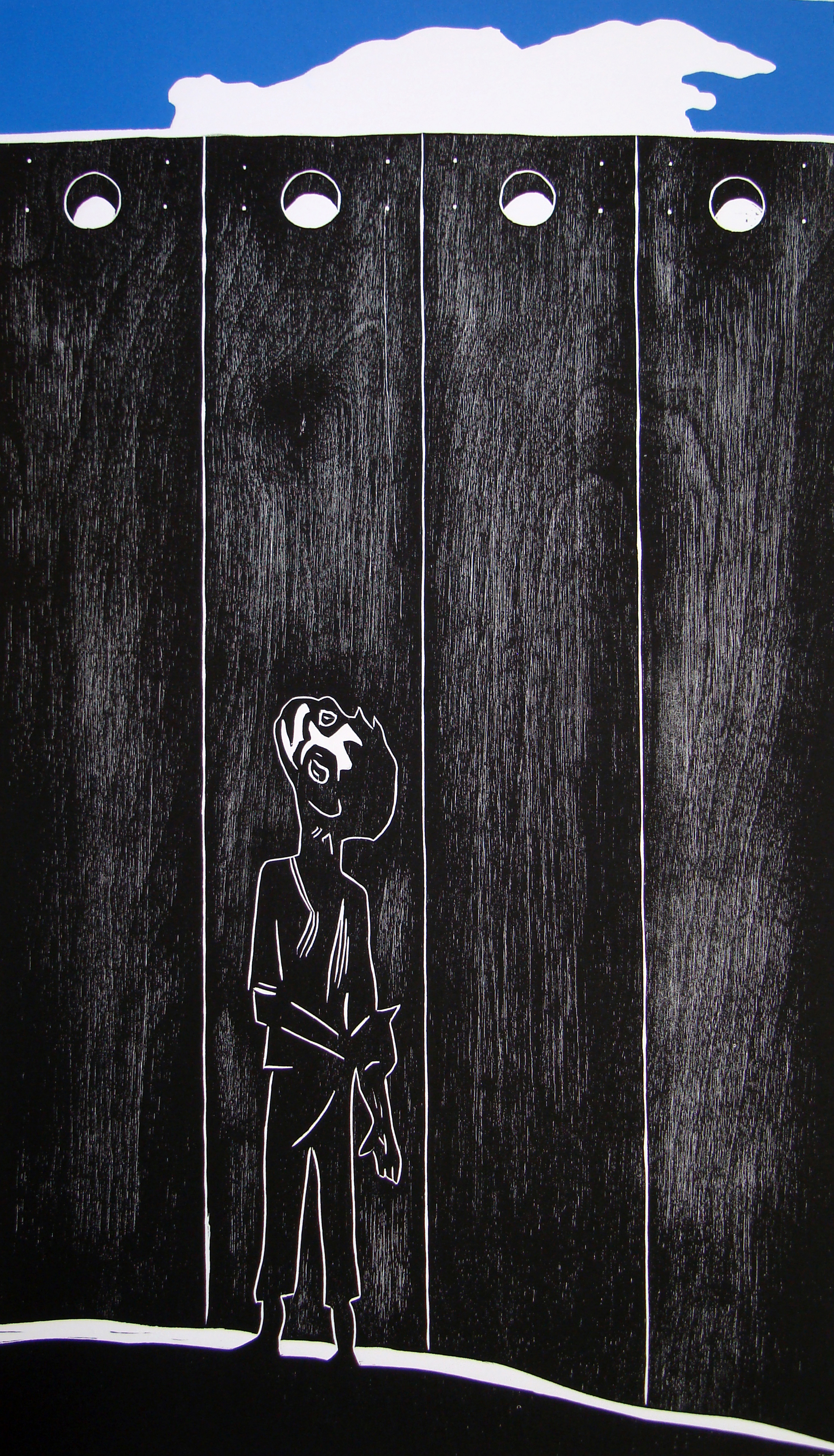Welcome Remarks
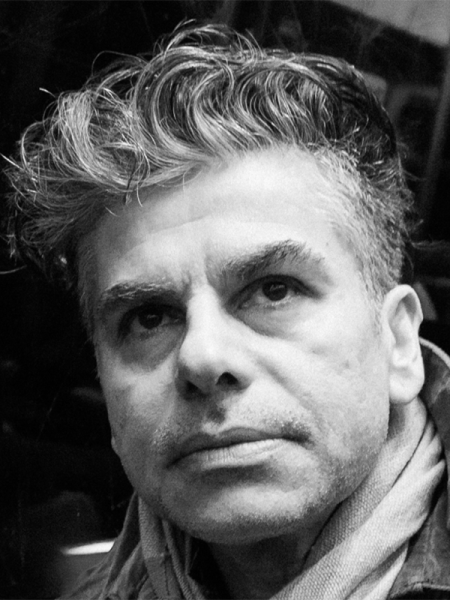 Jamal J. Elias is the Director of the Wolf Humanities Center, Walter H. Annenberg Professor of the Humanities, and Professor of Religious Studies at the University of Pennsylvania. He specializes in Islamic thought, literary and visual culture as well as history in Western and South Asia. His current research focuses on processes and understandings of religious community formation from the medieval to the modern world, as demonstrated in historical and literary writing as well as in visual and material culture. His most recent book, After Rumi: Language, Kinship and the Making of a Religious Community, is forthcoming from Harvard University Press. He is also the lead investigator on a project entitled "Art and Islam in Society: Aesthetic Cognition Expanding Religious Meaning," funded by the Templeton Religion Trust. Elias regularly teaches courses in his areas of specialization, on Islam and modernity and on comparative religion, as well as advanced graduate courses in Sufism, Religion and Visual Culture, Qur'anic Studies, and in Persian and Turkish religious literature. He is the author of Alef is for Allah: Childhood, Emotion and Visual Culture in Islamic Societies (Berkeley 2018); Aisha's Cushion: Religious Art, Perception and Practice in Islam (Cambridge, MA 2012); On Wings of Diesel: Trucks, Identity and Culture in Pakistan (Oxford 2011); This is Islam: From Muhammad and the Community of Believers to Islam in the Global Community (Great Barrington 2011); Islam (London 1999); The Throne Carrier of God: The Life and Thought of ‘Ala’ ad-dawla as-Simnani (Albany 1995); the coauthor of Interpreting the Self: Autobiography in the Arabic Literary Tradition (Berkeley 2001); the editor and translator of Death Before Dying: Sufi Poems of Sultan Bahu (Berkeley 1998); the editor of Key Themes for the Study of Islam (Oxford 2010); the coeditor of Light Upon Light: A Festschrift presented to Gerhard Böwering by His Students (Leiden 2019); and the author of numerous articles. His writings have been translated into at least nine languages.
Jamal J. Elias is the Director of the Wolf Humanities Center, Walter H. Annenberg Professor of the Humanities, and Professor of Religious Studies at the University of Pennsylvania. He specializes in Islamic thought, literary and visual culture as well as history in Western and South Asia. His current research focuses on processes and understandings of religious community formation from the medieval to the modern world, as demonstrated in historical and literary writing as well as in visual and material culture. His most recent book, After Rumi: Language, Kinship and the Making of a Religious Community, is forthcoming from Harvard University Press. He is also the lead investigator on a project entitled "Art and Islam in Society: Aesthetic Cognition Expanding Religious Meaning," funded by the Templeton Religion Trust. Elias regularly teaches courses in his areas of specialization, on Islam and modernity and on comparative religion, as well as advanced graduate courses in Sufism, Religion and Visual Culture, Qur'anic Studies, and in Persian and Turkish religious literature. He is the author of Alef is for Allah: Childhood, Emotion and Visual Culture in Islamic Societies (Berkeley 2018); Aisha's Cushion: Religious Art, Perception and Practice in Islam (Cambridge, MA 2012); On Wings of Diesel: Trucks, Identity and Culture in Pakistan (Oxford 2011); This is Islam: From Muhammad and the Community of Believers to Islam in the Global Community (Great Barrington 2011); Islam (London 1999); The Throne Carrier of God: The Life and Thought of ‘Ala’ ad-dawla as-Simnani (Albany 1995); the coauthor of Interpreting the Self: Autobiography in the Arabic Literary Tradition (Berkeley 2001); the editor and translator of Death Before Dying: Sufi Poems of Sultan Bahu (Berkeley 1998); the editor of Key Themes for the Study of Islam (Oxford 2010); the coeditor of Light Upon Light: A Festschrift presented to Gerhard Böwering by His Students (Leiden 2019); and the author of numerous articles. His writings have been translated into at least nine languages.
Vital Pasts
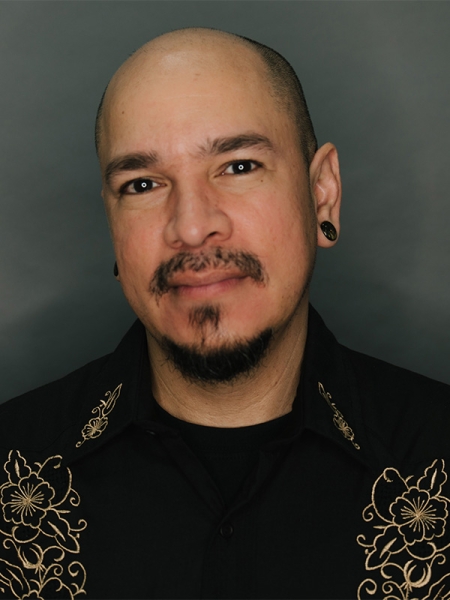 Carlos Barberena (b. Granada, Nicaragua) is a contemporary printmaker known for his relief prints and the use of images from pop culture, as well as from political and cultural tragedies. In his art, he has consistently reflected on the cycles of repression and resistance and its relationship to the Diaspora in which he has lived, throughout dictatorship, revolution, erasure, renewal, hope, dictatorship and repression. Barberena has received various awards, most notably: "The Otis Philbrick Memorial Prize" - Boston Printmakers: 2023 North American Print Biennial. Boston, MA; “The Elizabeth Catlett Memorial Award”, MAPC, University of Iowa; Second Prize in the 13th International Contemporary Print Biennial of Trois-Rivières (BIECTR), Québec, Canada; Best in Show - PrintAustin: The Contemporary Print, Austin, TX and the National Printmaking Award in Managua, Nicaragua, among others. His work is also included in numerous national and international public collections such Museum of Latin American Art, Long Beach, CA; Museum of Fine Arts, Boston; Whitney Museum of American Art / Special Collection, New York; Fort Wayne Museum of Art, IN; National Museum of Mexican Art, Chicago; The Illinois State Museum, Springfield, IL; KIWA, Tokyo, Japan; Museo de Arte Contemporáneo Fundación Ortiz-Gurdián, León, Nicaragua among others. Barberena currently lives and works in Chicago where he runs Bandolero Press. He is also a core member of the Instituto Gráfico de Chicago.
Carlos Barberena (b. Granada, Nicaragua) is a contemporary printmaker known for his relief prints and the use of images from pop culture, as well as from political and cultural tragedies. In his art, he has consistently reflected on the cycles of repression and resistance and its relationship to the Diaspora in which he has lived, throughout dictatorship, revolution, erasure, renewal, hope, dictatorship and repression. Barberena has received various awards, most notably: "The Otis Philbrick Memorial Prize" - Boston Printmakers: 2023 North American Print Biennial. Boston, MA; “The Elizabeth Catlett Memorial Award”, MAPC, University of Iowa; Second Prize in the 13th International Contemporary Print Biennial of Trois-Rivières (BIECTR), Québec, Canada; Best in Show - PrintAustin: The Contemporary Print, Austin, TX and the National Printmaking Award in Managua, Nicaragua, among others. His work is also included in numerous national and international public collections such Museum of Latin American Art, Long Beach, CA; Museum of Fine Arts, Boston; Whitney Museum of American Art / Special Collection, New York; Fort Wayne Museum of Art, IN; National Museum of Mexican Art, Chicago; The Illinois State Museum, Springfield, IL; KIWA, Tokyo, Japan; Museo de Arte Contemporáneo Fundación Ortiz-Gurdián, León, Nicaragua among others. Barberena currently lives and works in Chicago where he runs Bandolero Press. He is also a core member of the Instituto Gráfico de Chicago.
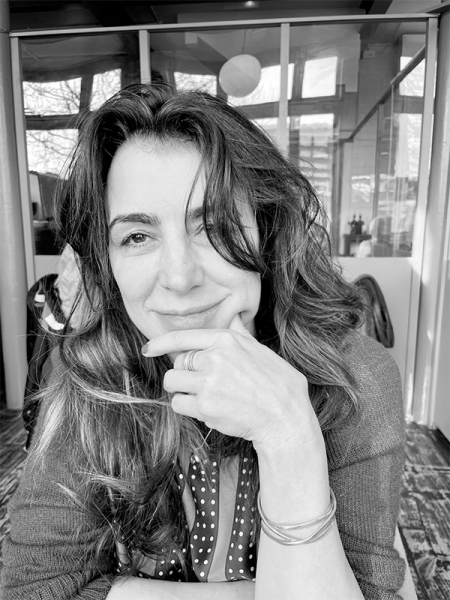 Hannah Feldman is Associate Professor of Art History at Northwestern University, where she is also core faculty in Middle Eastern and North African Studies and Comparative Literary Studies. The author of From a Nation Torn: Decolonizing Art and Representation in France, 1945-1962, Feldman’s writing on artists from around the world and especially the Middle East and North Africa has been published internationally, including in journals and magazines such as October, nka, Third Text, Art Journal, Regards, Artforum, and Frieze. The co-editor, with Rachel Haidu, of a volume about new art historical writing (in-progress), she is also completing a book about art in Algeria during the first years of the nation’s independence and an extended study of photography in the Arabic-speaking world. She is also the curator of Majid Fathizadeh: Ideologues of the Game and Other Seekers of the End (Ab-Anbar, London, 2024), and an upcoming retrospective exhibition of the Lebanese born artist Huguette Caland, to open at the Reina Sofia in 2025.
Hannah Feldman is Associate Professor of Art History at Northwestern University, where she is also core faculty in Middle Eastern and North African Studies and Comparative Literary Studies. The author of From a Nation Torn: Decolonizing Art and Representation in France, 1945-1962, Feldman’s writing on artists from around the world and especially the Middle East and North Africa has been published internationally, including in journals and magazines such as October, nka, Third Text, Art Journal, Regards, Artforum, and Frieze. The co-editor, with Rachel Haidu, of a volume about new art historical writing (in-progress), she is also completing a book about art in Algeria during the first years of the nation’s independence and an extended study of photography in the Arabic-speaking world. She is also the curator of Majid Fathizadeh: Ideologues of the Game and Other Seekers of the End (Ab-Anbar, London, 2024), and an upcoming retrospective exhibition of the Lebanese born artist Huguette Caland, to open at the Reina Sofia in 2025.
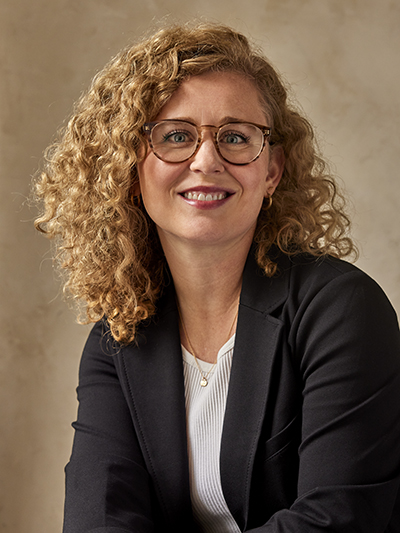 Melissa Reynolds is a historian of early modern European medicine and science whose research examines how regimes of knowledge about the body and the natural world were shaped through processes of cultural, linguistic, and material translation. She received her PhD in History from Rutgers University in 2019 and was the Perkins-Cotsen Postdoctoral Fellow in the Society of Fellows in the Liberal Arts at Princeton University. She is the author of Reading Practice: The Pursuit of Natural Knowledge from Manuscript to Print (forthcoming from UChicago Press, 2024), as well as articles and essays in the Journal of British Studies, Social History of Medicine, and Historical Studies in the Natural Sciences. This fall she will join the faculty at TCU as an assistant professor of early modern European history.
Melissa Reynolds is a historian of early modern European medicine and science whose research examines how regimes of knowledge about the body and the natural world were shaped through processes of cultural, linguistic, and material translation. She received her PhD in History from Rutgers University in 2019 and was the Perkins-Cotsen Postdoctoral Fellow in the Society of Fellows in the Liberal Arts at Princeton University. She is the author of Reading Practice: The Pursuit of Natural Knowledge from Manuscript to Print (forthcoming from UChicago Press, 2024), as well as articles and essays in the Journal of British Studies, Social History of Medicine, and Historical Studies in the Natural Sciences. This fall she will join the faculty at TCU as an assistant professor of early modern European history.
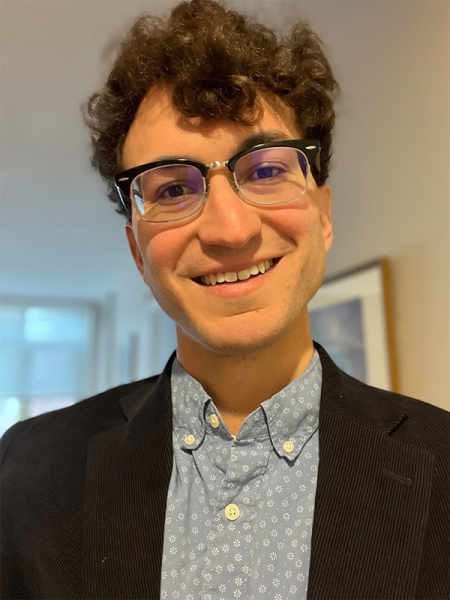 Spencer Weinreich is a Junior Fellow in the Harvard Society of Fellows and Lecturer on the History of Science at Harvard University. He received his Ph.D. in the history of science from Princeton University in 2022. A historian of early modern Europe, he is currently writing a book entitled An Experimental Box: A History of Solitary Confinement (under contract with Harvard University Press). His work has appeared in Journal of the History of Ideas, History Workshop Journal, Journal of Social History, Renaissance Quarterly, and the Los Angeles Review of Books, among other fora.
Spencer Weinreich is a Junior Fellow in the Harvard Society of Fellows and Lecturer on the History of Science at Harvard University. He received his Ph.D. in the history of science from Princeton University in 2022. A historian of early modern Europe, he is currently writing a book entitled An Experimental Box: A History of Solitary Confinement (under contract with Harvard University Press). His work has appeared in Journal of the History of Ideas, History Workshop Journal, Journal of Social History, Renaissance Quarterly, and the Los Angeles Review of Books, among other fora.
Unruly Presents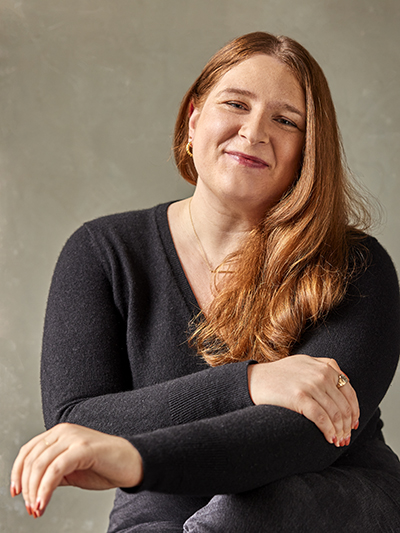 Allison Brooks-Conrad is a PhD candidate in historical musicology at the University of Pennsylvania. Her research examines the intersection of gender, labor, and socialist policy in different scenes of musical production in the Soviet Union. More specifically, she asks how women living in the Soviet cities of Tallinn, Estonia; Tbilisi, Georgia; and Riga, Latvia, used music and sound in their attempts to conform to and diverge from Soviet state policy, social expectations, and gender roles during the late Socialist era. Other areas of interest include musical production, circulation, and political action in Soviet-occupied Estonia, and Eastern European state socialisms and musical inscription. Her research has been supported by the Association for Slavic, East European, and Eurasian Studies Stephen F. Cohen-Robert C. Tucker Dissertation Research Fellowship. Allison holds a Bachelor of Music in cello performance and a Bachelor of Arts in history from Lawrence University and Conservatory.
Allison Brooks-Conrad is a PhD candidate in historical musicology at the University of Pennsylvania. Her research examines the intersection of gender, labor, and socialist policy in different scenes of musical production in the Soviet Union. More specifically, she asks how women living in the Soviet cities of Tallinn, Estonia; Tbilisi, Georgia; and Riga, Latvia, used music and sound in their attempts to conform to and diverge from Soviet state policy, social expectations, and gender roles during the late Socialist era. Other areas of interest include musical production, circulation, and political action in Soviet-occupied Estonia, and Eastern European state socialisms and musical inscription. Her research has been supported by the Association for Slavic, East European, and Eurasian Studies Stephen F. Cohen-Robert C. Tucker Dissertation Research Fellowship. Allison holds a Bachelor of Music in cello performance and a Bachelor of Arts in history from Lawrence University and Conservatory.
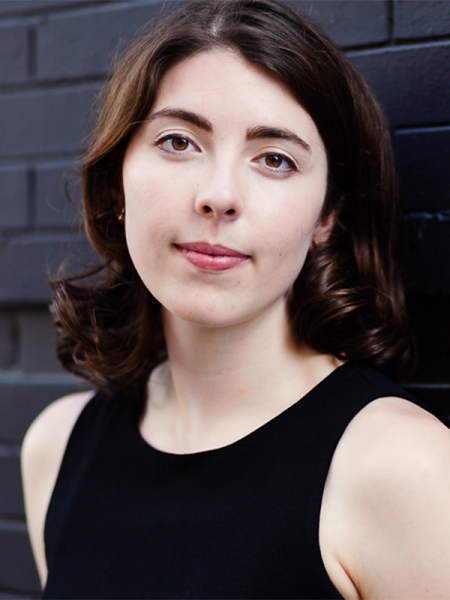 Flannery Cunningham is a composer and musicologist fascinated by vocal expression, text, and composers’ integration of preexistent materials. She aims to write music that surprises and delights. Called “silken” by the Washington Post, her work has been performed at festivals such as Aspen, June in Buffalo, Toronto Creative Music Lab, SPLICE Institute and Festival, and Copland House’s CULTIVATE and by performers such as International Contemporary Ensemble, PRISM Quartet, TAK, New York New Music Ensemble, Yarn/Wire, and Music from Copland House. Flannery is attracted to the very old and very new, especially 13th-14th-century song and contemporary electroacoustic technologies. In addition to acoustic ensembles, she writes for players and singers with interactive electronics, always striving to foreground the musicality of human performers. Originally from central Minnesota, Flannery holds degrees from Princeton University, University College Cork, and Stony Brook University as well as a joint PhD in composition and musicology from the University of Pennsylvania. Alongside her own creative work and research, she currently serves on the faculty and board of SPLICE Institute and as a promotion manager at the publisher G. Schirmer, where she works to increase programming of contemporary music by orchestras and other ensembles.
Flannery Cunningham is a composer and musicologist fascinated by vocal expression, text, and composers’ integration of preexistent materials. She aims to write music that surprises and delights. Called “silken” by the Washington Post, her work has been performed at festivals such as Aspen, June in Buffalo, Toronto Creative Music Lab, SPLICE Institute and Festival, and Copland House’s CULTIVATE and by performers such as International Contemporary Ensemble, PRISM Quartet, TAK, New York New Music Ensemble, Yarn/Wire, and Music from Copland House. Flannery is attracted to the very old and very new, especially 13th-14th-century song and contemporary electroacoustic technologies. In addition to acoustic ensembles, she writes for players and singers with interactive electronics, always striving to foreground the musicality of human performers. Originally from central Minnesota, Flannery holds degrees from Princeton University, University College Cork, and Stony Brook University as well as a joint PhD in composition and musicology from the University of Pennsylvania. Alongside her own creative work and research, she currently serves on the faculty and board of SPLICE Institute and as a promotion manager at the publisher G. Schirmer, where she works to increase programming of contemporary music by orchestras and other ensembles.
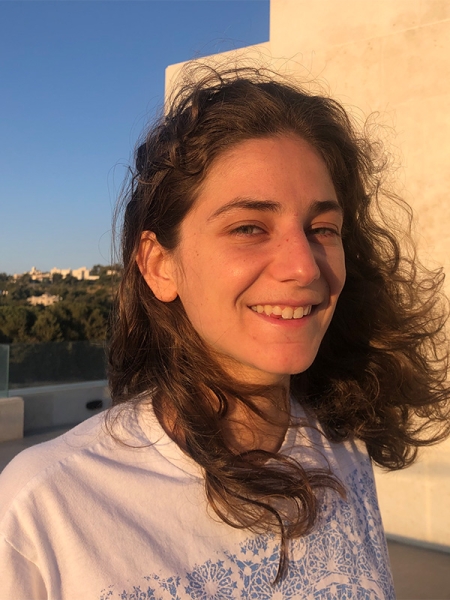 Nadine Fattaleh is a Palestinian writer based between New York City and Amman. She is currently a PhD student in the department of Media, Culture and Communications at New York University. She is a member of the Palestinian Social Fund (PSF). The PSF aims to financially support cooperative farms in Palestine through grassroots funding by the diaspora, who can play an active role in helping achieve food sovereignty and breaking the dependence on the occupation. Her translation of Khadijeh Habashneh's Knights of Cinema: The Story of the Palestine Film Unit was published in May 2023.
Nadine Fattaleh is a Palestinian writer based between New York City and Amman. She is currently a PhD student in the department of Media, Culture and Communications at New York University. She is a member of the Palestinian Social Fund (PSF). The PSF aims to financially support cooperative farms in Palestine through grassroots funding by the diaspora, who can play an active role in helping achieve food sovereignty and breaking the dependence on the occupation. Her translation of Khadijeh Habashneh's Knights of Cinema: The Story of the Palestine Film Unit was published in May 2023.
 Fatemeh Shams is an Iranian poet and literary scholar. Her work lies at the intersections of society, politics, and literary production. She is the author of A Revolution in Rhyme: Poetic Co-option Under the Islamic Republic (Oxford University Press, 2021), and When They Broke Down the Door (Mage, 2016). Her poems have appeared in the Poetry Magazine, London Poetry Magazine, Hopkins Review, and elsewhere. Her upcoming poetry chapbook Hopscotch will be published by Ugly Duckling Presse and Falschrum in 2024. She currently serves as associate professor of Persian literature at the University of Pennsylvania.
Fatemeh Shams is an Iranian poet and literary scholar. Her work lies at the intersections of society, politics, and literary production. She is the author of A Revolution in Rhyme: Poetic Co-option Under the Islamic Republic (Oxford University Press, 2021), and When They Broke Down the Door (Mage, 2016). Her poems have appeared in the Poetry Magazine, London Poetry Magazine, Hopkins Review, and elsewhere. Her upcoming poetry chapbook Hopscotch will be published by Ugly Duckling Presse and Falschrum in 2024. She currently serves as associate professor of Persian literature at the University of Pennsylvania.
Revolutionary Horizons
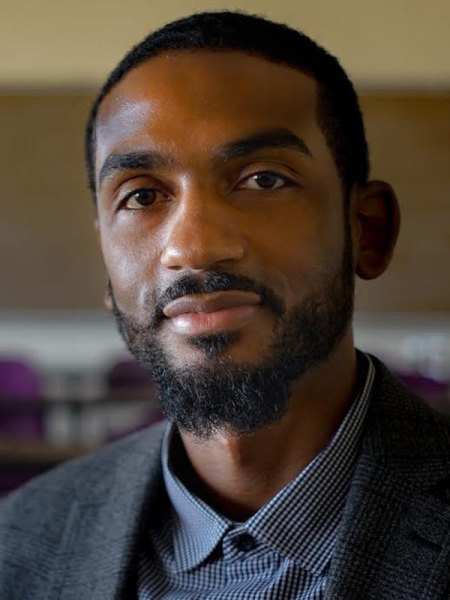 Orisanmi Burton is an assistant professor at American University and a social anthropologist working in the United States, examines in his research the imbrication of grassroots resistance and state repression. Within this broad area of inquiry, his present work explores the collision of Black-led movements for social, political, and economic transformation with state infrastructures of militarized policing, surveillance, and imprisonment. Burton earned a bachelor’s degree from Hampshire College, a master’s in library and Information science with a concentration in archival studies from Long Island University, and a PhD from the University of North Carolina at Chapel Hill. His research has received support from the Institute of African American Research at the University of North Carolina and the Wenner-Gren Foundation.
Orisanmi Burton is an assistant professor at American University and a social anthropologist working in the United States, examines in his research the imbrication of grassroots resistance and state repression. Within this broad area of inquiry, his present work explores the collision of Black-led movements for social, political, and economic transformation with state infrastructures of militarized policing, surveillance, and imprisonment. Burton earned a bachelor’s degree from Hampshire College, a master’s in library and Information science with a concentration in archival studies from Long Island University, and a PhD from the University of North Carolina at Chapel Hill. His research has received support from the Institute of African American Research at the University of North Carolina and the Wenner-Gren Foundation.
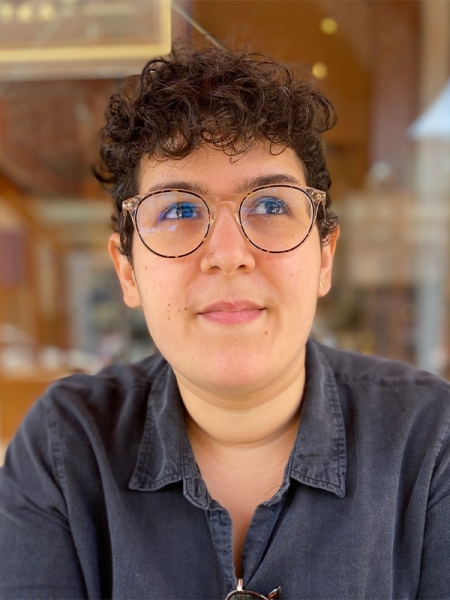 Nour El Rayes is an ethnomusicologist working on popular music in the Arab world. She is interested more broadly in the ways that performance and sound engage and transform our relationships to time, focusing especially on modes of futurity and their attendant affective dimensions. El Rayes’ current book project, an ethnography of alternative music in Lebanon, explores how music has been critical to the project of realizing particular aspirations or hopes for non-violent futures. She holds a PhD in Ethnomusicology with a designated emphasis in New Media from the University of California, Berkeley, and is Assistant Professor of Ethnomusicology at the Peabody Institute of The Johns Hopkins University.
Nour El Rayes is an ethnomusicologist working on popular music in the Arab world. She is interested more broadly in the ways that performance and sound engage and transform our relationships to time, focusing especially on modes of futurity and their attendant affective dimensions. El Rayes’ current book project, an ethnography of alternative music in Lebanon, explores how music has been critical to the project of realizing particular aspirations or hopes for non-violent futures. She holds a PhD in Ethnomusicology with a designated emphasis in New Media from the University of California, Berkeley, and is Assistant Professor of Ethnomusicology at the Peabody Institute of The Johns Hopkins University.
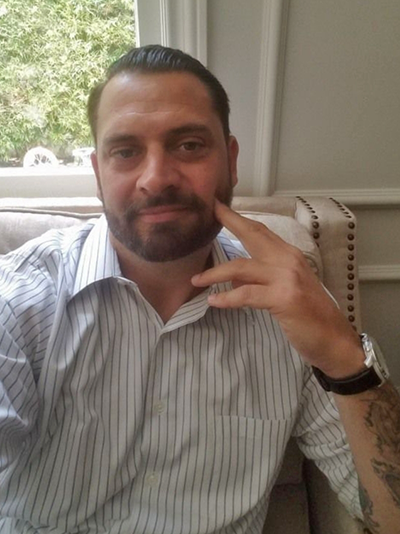 Timothy Malone is a formerly incarcerated scholar who spent eight years inside of various California carceral sites. In his developing monograph, The Carceral Death Machine: Abandonment, Contagion and Sacrifice in the Contemporary Prison, Tim argues that the lived experience of the contemporary prison yard is one of functional lawlessness because although implicit, the de facto and primary punishment realized through being sentenced to prison is an exposure to both the threat and/or actuality of state-organized, inmate-versus-inmate and racialized forms of violence within the always-entropic carceral thresher, including the race riot. These forms of violence are extra-juridical and superseding of the law, yet only made possible through the state’s prison sentence, which is law itself. He describes all of these features of a contemporary prison sentence taken together as carceral abandonment, a statecraft, which is the primary punishing technology of the neoliberalized, white-supremacist, carceral state meant to realize three forms of death – social, subjective and biological - for largely-racialized populations deemed superfluous to the creation of capital. The contemporary prison is a state-organized, auto-genocidal war, cordoned off and contained away from the civil, and a prison sentence is a forced conscription within it.
Timothy Malone is a formerly incarcerated scholar who spent eight years inside of various California carceral sites. In his developing monograph, The Carceral Death Machine: Abandonment, Contagion and Sacrifice in the Contemporary Prison, Tim argues that the lived experience of the contemporary prison yard is one of functional lawlessness because although implicit, the de facto and primary punishment realized through being sentenced to prison is an exposure to both the threat and/or actuality of state-organized, inmate-versus-inmate and racialized forms of violence within the always-entropic carceral thresher, including the race riot. These forms of violence are extra-juridical and superseding of the law, yet only made possible through the state’s prison sentence, which is law itself. He describes all of these features of a contemporary prison sentence taken together as carceral abandonment, a statecraft, which is the primary punishing technology of the neoliberalized, white-supremacist, carceral state meant to realize three forms of death – social, subjective and biological - for largely-racialized populations deemed superfluous to the creation of capital. The contemporary prison is a state-organized, auto-genocidal war, cordoned off and contained away from the civil, and a prison sentence is a forced conscription within it.
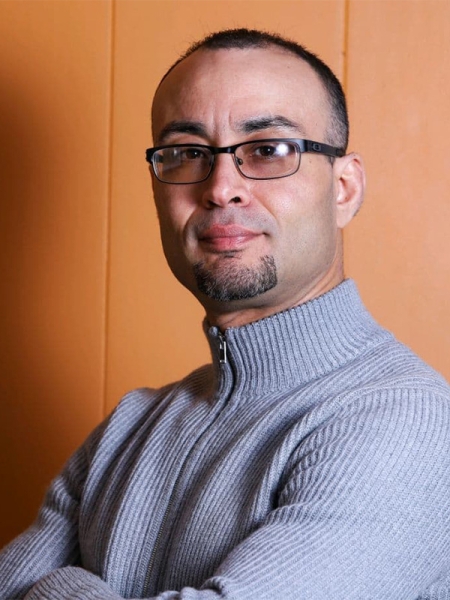 Robert Saleem Holbrook is Executive Director of the Abolitionist Law Center and Lecturer at Penn Law. He, Patricia Vickers, and Patricia's son Shakaboona Marshall are co-founders of the Human Rights Coalition, a volunteer-run organization started in Philadelphia in 2001. HRC's mission is "to empower prisoners’ families to be leaders in prison organizing and to teach them how to advocate on behalf of their loved ones in prison and expose the inhumane practices of the Department of Corrections." Vickers, Marshall, and Holbrook also founded Coalition to Abolish Death by Incarceration (CADBI-Philly), which works to change legislation so that sentences of life-without-parole will be abolished. Shakaboona and Saleem were formerly incarcerated for decades after being sentenced as teenagers.
Robert Saleem Holbrook is Executive Director of the Abolitionist Law Center and Lecturer at Penn Law. He, Patricia Vickers, and Patricia's son Shakaboona Marshall are co-founders of the Human Rights Coalition, a volunteer-run organization started in Philadelphia in 2001. HRC's mission is "to empower prisoners’ families to be leaders in prison organizing and to teach them how to advocate on behalf of their loved ones in prison and expose the inhumane practices of the Department of Corrections." Vickers, Marshall, and Holbrook also founded Coalition to Abolish Death by Incarceration (CADBI-Philly), which works to change legislation so that sentences of life-without-parole will be abolished. Shakaboona and Saleem were formerly incarcerated for decades after being sentenced as teenagers.
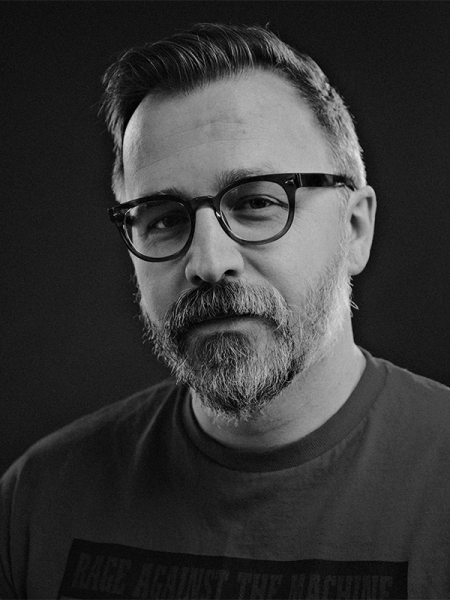 Geo Maher is the Coordinator of the W.E.B. Du Bois Movement School for Abolition & Reconstruction, having taught previously at Vassar College, San Quentin State Prison, and the Venezuelan School of Planning in Caracas. He is co-editor of the Duke University Press series Radical Américas, and author of five books: We Created Chávez (2013), Building the Commune (2016), Decolonizing Dialectics (2017), A World Without Police (2021), and Anticolonial Eruptions (2022).
Geo Maher is the Coordinator of the W.E.B. Du Bois Movement School for Abolition & Reconstruction, having taught previously at Vassar College, San Quentin State Prison, and the Venezuelan School of Planning in Caracas. He is co-editor of the Duke University Press series Radical Américas, and author of five books: We Created Chávez (2013), Building the Commune (2016), Decolonizing Dialectics (2017), A World Without Police (2021), and Anticolonial Eruptions (2022).
Closing Remarks
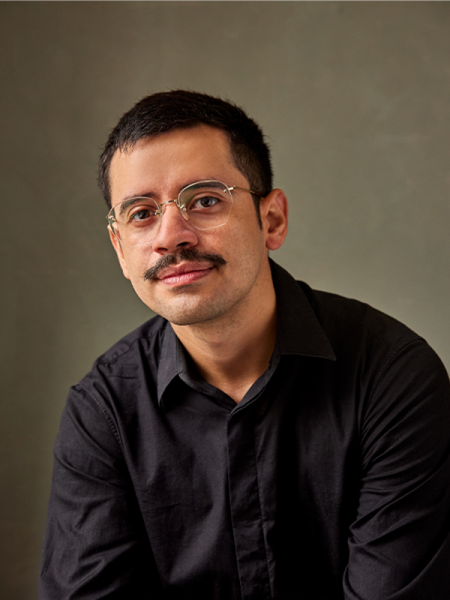 Josué Chávez is a PhD Candidate in Spanish and Portuguese at the University of Pennsylvania, where he studies how Central American artistic productions mediate national histories of socio-economic transformation and their global connections. His dissertation, Abject Comportments: Financial Experiments and Artistic Forms in Contemporary Central America, investigates how, after the failure of revolutionary struggles in the late 20th-century, contemporary literature, visual arts and architecture are able to theorize in their formal coordination the relations between national financial experiments and neocolonial class relations as contradictory strategies of self-delusion. Focusing on the transformation of Panama into a tax haven, the dollarization and Bitcoinization of the remittance economy in El Salvador, and the legalization of charter cities in Honduras, the project scrutinizes the potential to produce new knowledge about finance and Central America in a global context that only the arts, their criticism and interpretation can give access to.
Josué Chávez is a PhD Candidate in Spanish and Portuguese at the University of Pennsylvania, where he studies how Central American artistic productions mediate national histories of socio-economic transformation and their global connections. His dissertation, Abject Comportments: Financial Experiments and Artistic Forms in Contemporary Central America, investigates how, after the failure of revolutionary struggles in the late 20th-century, contemporary literature, visual arts and architecture are able to theorize in their formal coordination the relations between national financial experiments and neocolonial class relations as contradictory strategies of self-delusion. Focusing on the transformation of Panama into a tax haven, the dollarization and Bitcoinization of the remittance economy in El Salvador, and the legalization of charter cities in Honduras, the project scrutinizes the potential to produce new knowledge about finance and Central America in a global context that only the arts, their criticism and interpretation can give access to.
Keynote
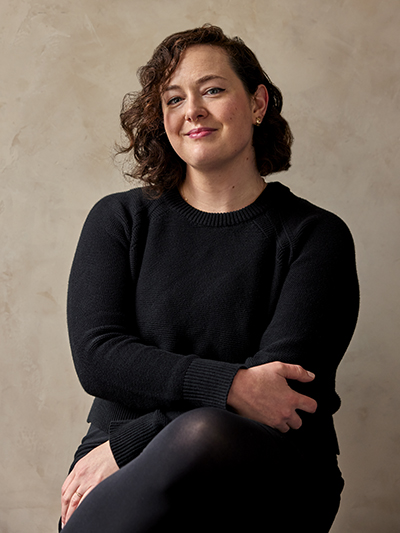 Alessandra Amin is a historian of modern art in the Arab world, specializing in Palestinian painting and graphic arts during the second half of the twentieth century. Her work explores the aesthetic and philosophical currents mediating artists’ relationships to Palestine across chasms of space, time, and catastrophe, paying particular attention to the gendered dimensions of Palestinian futurities. Her research has been supported by the Center for Palestine Studies at Columbia University, the Social Science Research Council, the Palestinian American Research Center, Darat al-Funun, and the U.S. Department of Education. Her writing has appeared in Trans Asia Photography, MAVCOR Journal, and Art Journal, and is forthcoming in ARTMargins. At Penn, she is working on her first book project, Mother Figure: Art and the Palestinian Dream-State.
Alessandra Amin is a historian of modern art in the Arab world, specializing in Palestinian painting and graphic arts during the second half of the twentieth century. Her work explores the aesthetic and philosophical currents mediating artists’ relationships to Palestine across chasms of space, time, and catastrophe, paying particular attention to the gendered dimensions of Palestinian futurities. Her research has been supported by the Center for Palestine Studies at Columbia University, the Social Science Research Council, the Palestinian American Research Center, Darat al-Funun, and the U.S. Department of Education. Her writing has appeared in Trans Asia Photography, MAVCOR Journal, and Art Journal, and is forthcoming in ARTMargins. At Penn, she is working on her first book project, Mother Figure: Art and the Palestinian Dream-State.
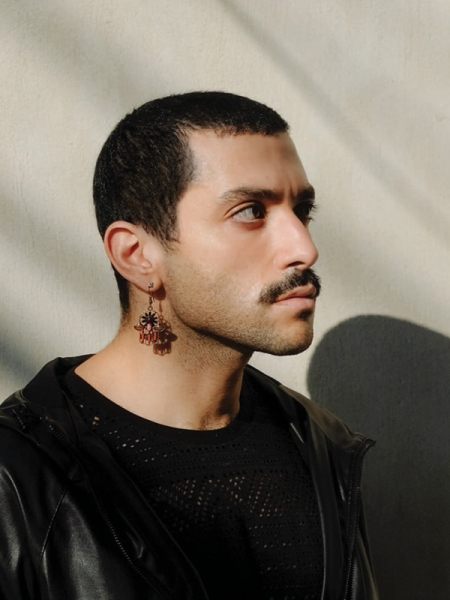 Hamed Sinno is a composer, writer, performer, and social justice advocate. Their research explores the vocal organ and digital vocality as sites of political negotiation. H writes, and lectures about popular culture as engaged practice. They have been the lyricist and front-person for Mashrou Leila since 2008, agitating conversations around representational politics, free speech, and sexual freedoms in the Middle East. H has a BFA from the Department of Architecture and Design at the American University of Beirut, and an MA in Digital Musics from Dartmouth College. Their debut full-length opera, Westerly Breath, was in development at The Industry Los Angeles, and opened at the New York Met Museum in January 2024. Their solo debut, Poems of Consumption, explores the overlaps of consumerism, mental illness, and environmental crisis. Poems of Consumption debuted at London’s Barbican Centre in July 2023.
Hamed Sinno is a composer, writer, performer, and social justice advocate. Their research explores the vocal organ and digital vocality as sites of political negotiation. H writes, and lectures about popular culture as engaged practice. They have been the lyricist and front-person for Mashrou Leila since 2008, agitating conversations around representational politics, free speech, and sexual freedoms in the Middle East. H has a BFA from the Department of Architecture and Design at the American University of Beirut, and an MA in Digital Musics from Dartmouth College. Their debut full-length opera, Westerly Breath, was in development at The Industry Los Angeles, and opened at the New York Met Museum in January 2024. Their solo debut, Poems of Consumption, explores the overlaps of consumerism, mental illness, and environmental crisis. Poems of Consumption debuted at London’s Barbican Centre in July 2023.



